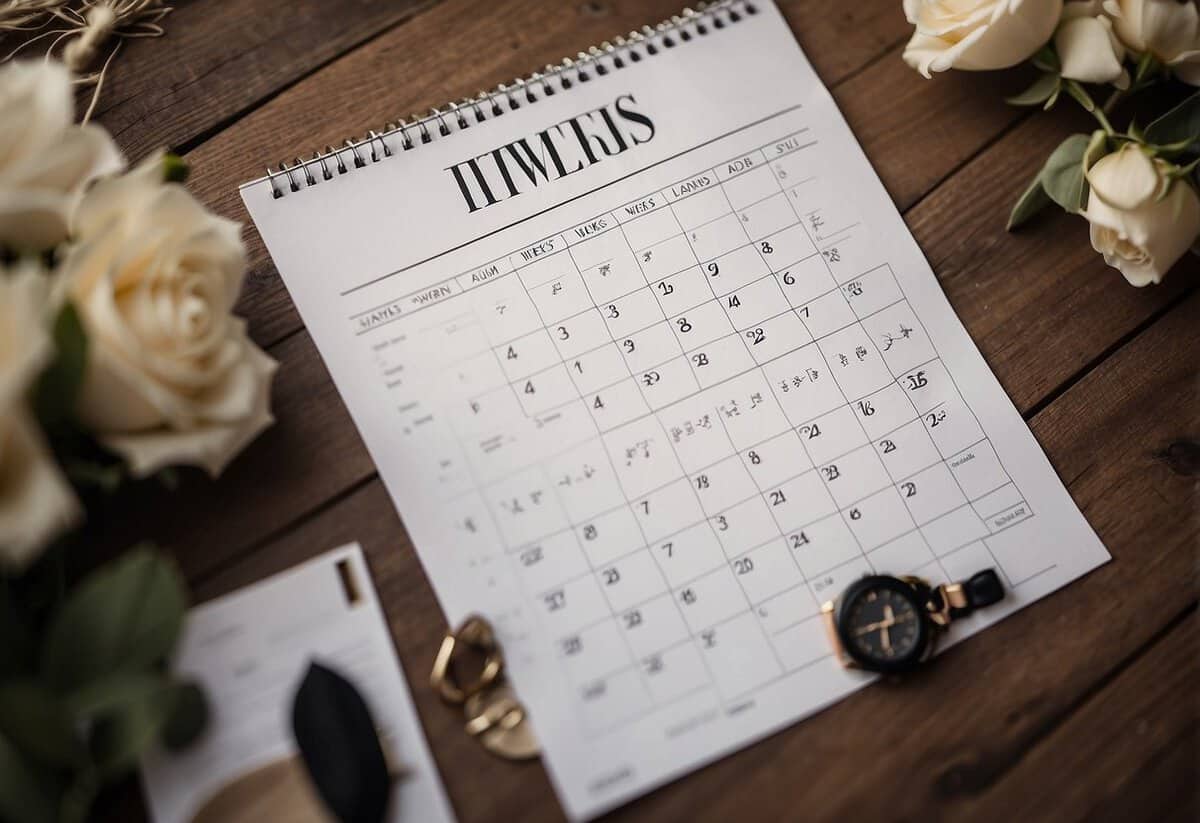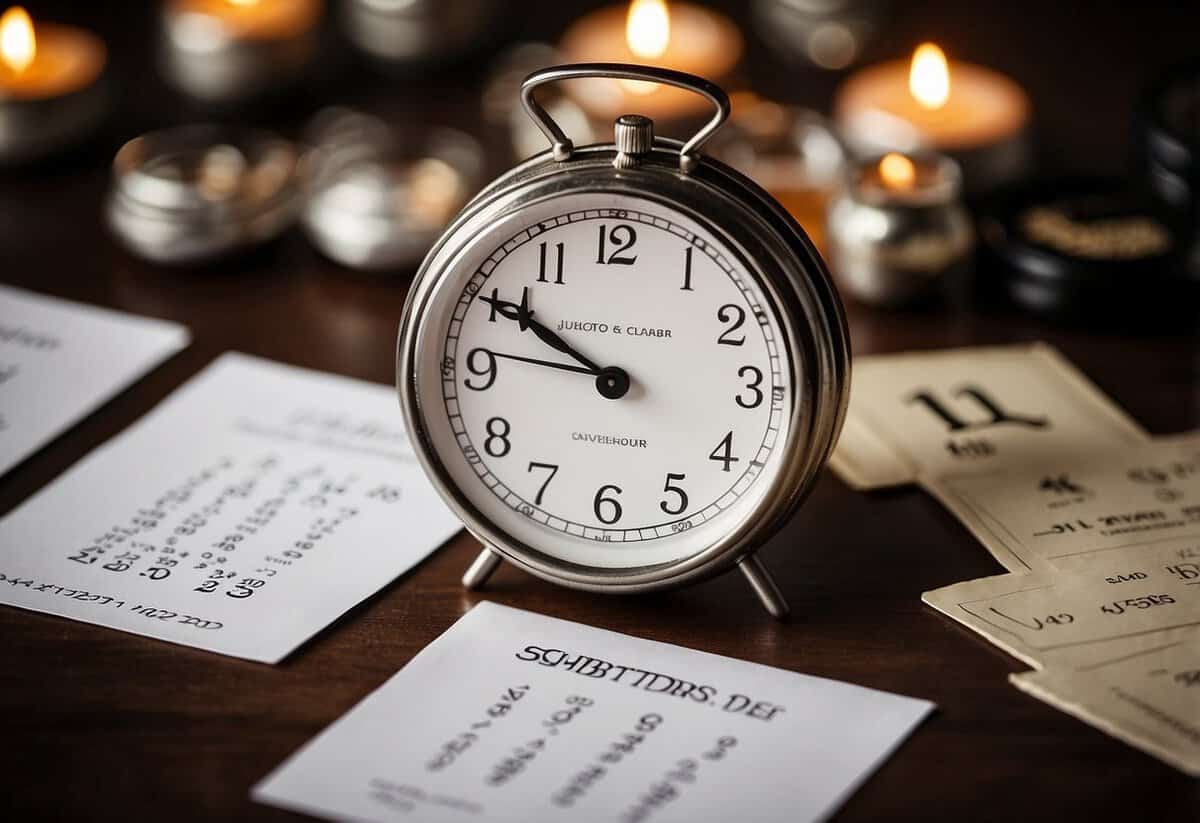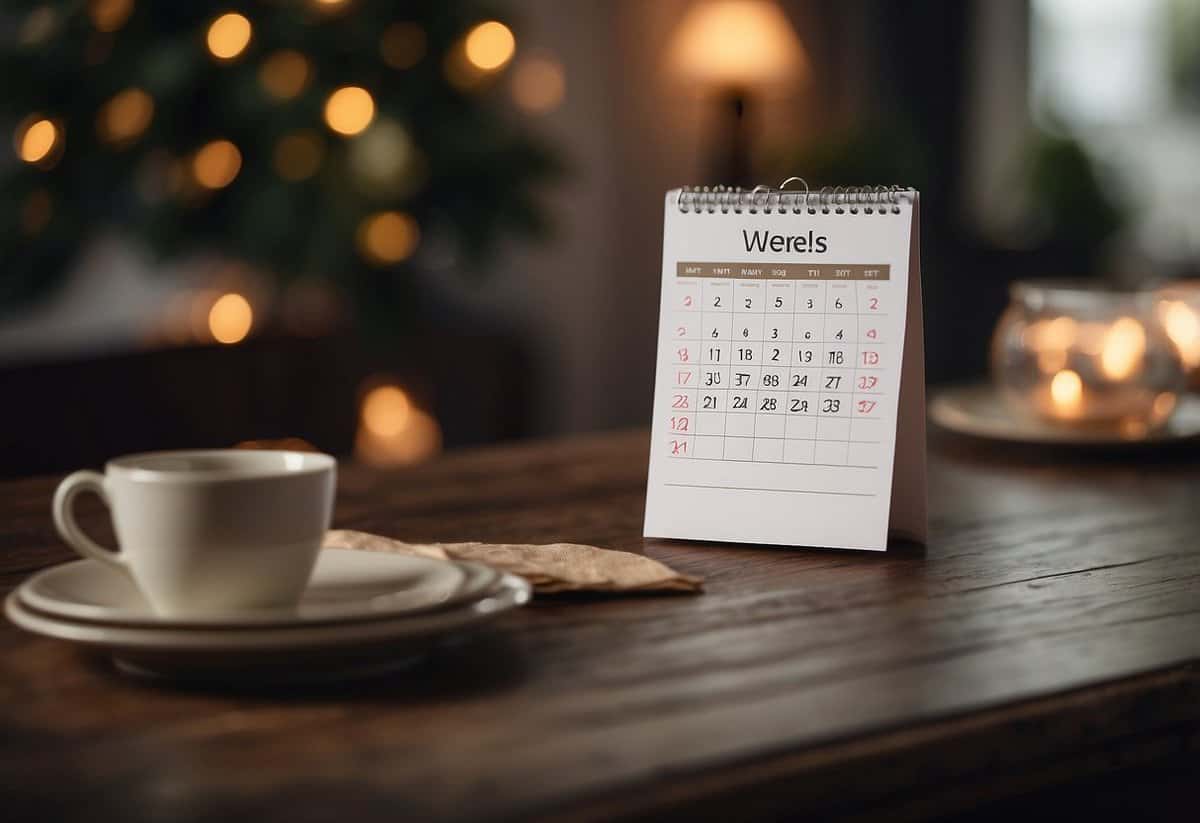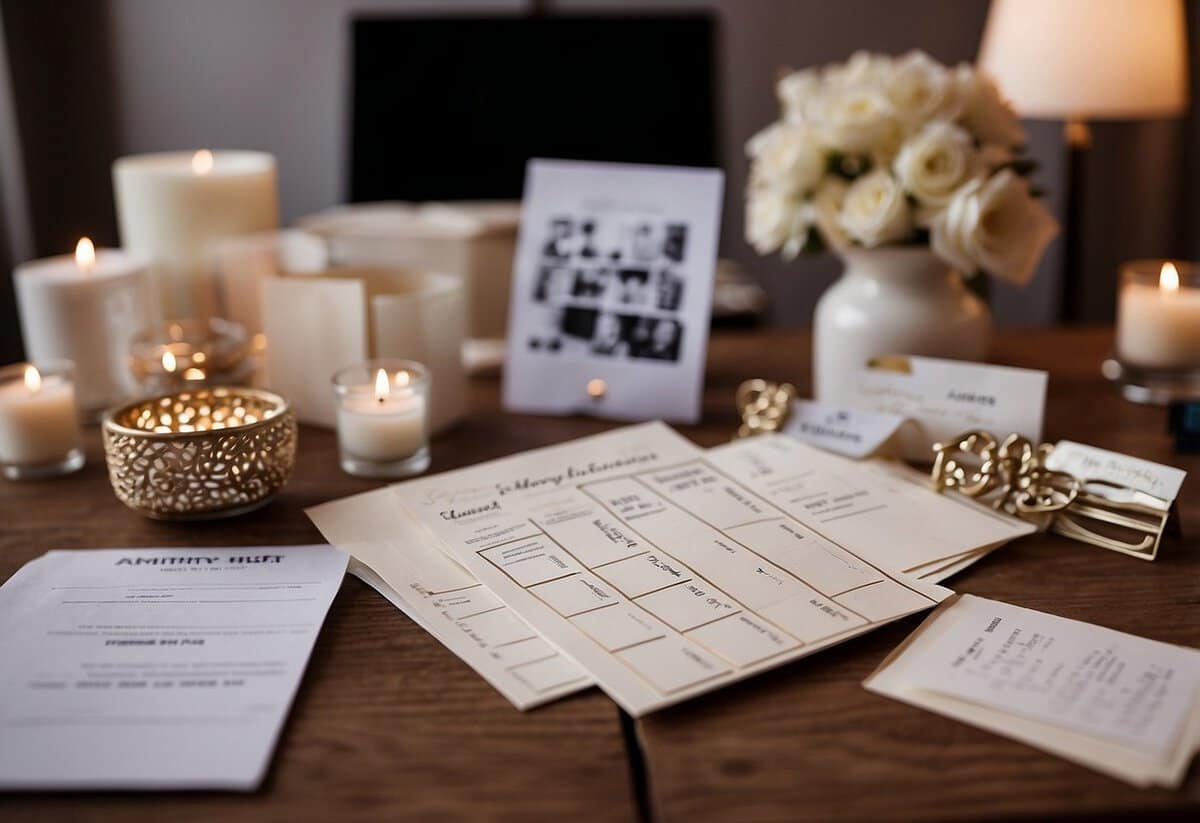Is 5 Weeks Too Late to Send Wedding Invitations? Tips for Last-Minute Planning
Are you panicking over whether you’ve left it too late to send out your wedding invitations? Don’t worry, you’re not alone! Many couples wrestle with the timing of their invites. Sending your wedding invitations five weeks before the big day can be cutting it close, especially when considering traditional etiquette.

Typically, wedding invitations are sent out six to eight weeks before the wedding, giving your guests ample time to make travel arrangements and RSVP. If you haven’t already sent out Save-the-Dates, you might find that your guests need a bit more notice. Zola and The Knot recommend sending invites at least two months in advance.
However, if you’re in a time crunch, consider reaching out to your guests with a quick heads-up via email or phone call while their official invites are on the way. This thoughtful touch ensures your loved ones have time to plan, keeping the excitement and anticipation for your big day alive.
Understanding Wedding Invitation Timing

Sending wedding invitations on time ensures your guests can plan and RSVP accordingly. This section will explore the ideal timing, the importance of ‘Save-the-Date’ cards, and what happens if you send invitations late.
Ideal Time Frame for Sending Invitations
The best time to send wedding invitations is about 6-8 weeks before the wedding date. This timing gives guests enough time to make travel arrangements and respond. If you’re planning a destination wedding, consider sending the invitations even earlier, around 3 months in advance. This ensures your guests have ample time to plan and book accommodations and flights.
Sending out invitations at the same time, regardless of how far guests need to travel, helps avoid confusion and ensures everyone is equally informed.
The Role of ‘Save-the-Date’ Cards
‘Save-the-Date’ cards play an important role in your wedding timeline. Typically, these cards should be sent out 4-6 months before the wedding. This is especially useful for guests who need to travel. It informs them early about the date, giving them plenty of time to prepare.
Including your wedding website on these cards can also be helpful, offering additional details and updates. This early notice is appreciated and often necessary for busy schedules and making travel plans.
Late Invitation Implications
Sending invitations 5 weeks before your wedding can be risky. It might give guests less time to RSVP, make travel arrangements, or adjust their schedules. You may face challenges in finalizing your guest list and seating chart.
If invitations go out late, follow up promptly with guests to ensure they received their invite and can respond quickly. Additionally, consider reaching out personally to those traveling from far away. By being proactive, you can still manage a smooth planning process despite the later timing.
Whether on time or late, clear communication with your guests is vital. It helps them feel included and prepared, making your wedding day as smooth and enjoyable as possible.
Wedding Etiquette and Considerations

Sending wedding invitations is a key part of the planning process. Considering proper etiquette and the impact on guests can help ensure your big day goes smoothly.
Etiquette for Wedding Invitations
Invitations should be sent six to eight weeks before the wedding. This timeframe gives guests enough notice to plan and RSVP. For destination weddings or international guests, sending invitations earlier, about three months ahead, is advisable.
Include an “RSVP by” date. This encourages timely responses and helps with final arrangements. Giving guests around three to four weeks to RSVP is standard etiquette. It’s also polite to include registry information discreetly, often on a separate card.
For local weddings, a six-week notice can be sufficient. If you find yourself closer to the date, personal phone calls or emails to ensure attendance might be necessary.
The Impact on Guests and RSVPs
Invitations impact your guests’ ability to plan and attend your wedding. Sending them too late might be seen as rude and can affect how many people RSVP. Guests need time to arrange travel, accommodations, and adjust their schedules.
Getting RSVPs on time is crucial for finalizing details like catering and seating arrangements. An early RSVP date gives you more time to address any last-minute changes or additions.
International guests and destination weddings require ample notice. These guests need extra time to book flights and possibly arrange for passports or visas. Ensuring your invitations are sent well in advance helps them plan their trip without stress.
Sending invitations within the right timeframe respects your guests and supports the smooth running of your wedding day.
Destination Wedding Invitations

Planning a destination wedding requires a bit more effort and timing than local weddings. Key factors include when to send wedding invitations and organizing travel arrangements and accommodations for out-of-town guests.
Extended Timeline for Destination Weddings
When planning a destination wedding, it’s best to send wedding invitations at least six to eight months in advance. This allows your guests ample time to arrange travel, request time off work, and save money for the trip.
Consider also sending a save-the-date at least a year before the wedding. This initial notice helps your guests plan well in advance. Unlike local weddings, destination weddings require attendees to make significant plans early.
Using a wedding website can be helpful. It provides a central place for all wedding-related information and updates. Include travel guidelines, accommodation options, and activity suggestions for guests.
Travel Arrangements and Accommodations
For destination weddings, managing travel arrangements and accommodations for your guests is crucial. Providing detailed information on your wedding website can simplify this. Include recommendations for flights, local transportation, and accommodation options.
Make block bookings at hotels close to your wedding venue. This ensures that guests have nearby options, often at a discounted rate. Inform your guests of these options in your invitations and on your wedding website.
Additionally, provide a schedule of events and activities during the wedding weekend. This helps your guests know what to expect and plan accordingly. Offering travel tips and local information can make your guests’ experience more comfortable and enjoyable.
Contingency Planning for Late Invitations

If you find yourself needing to send out wedding invitations just 5 weeks before your big day, there are effective strategies to ensure your guests still get the necessary details on time. Digital invites can save the day, and clear communication can help manage expectations.
Digital Invites as a Quick Solution
When traditional mailed invitations would take too long, digital invites can be a lifesaver. Websites like Zola allow you to send beautifully designed e-vites quickly and efficiently. Digital invites reduce stress about physical cards getting lost in the mail and ensure your guests receive planning details right away.
Many platforms also offer detailed RSVP tracking, helping you manage your guest list without waiting for mailed RSVP cards. Include all necessary details in the digital invite: the date, location, dress code, and any special instructions. This way, your guests have all the planning details at their fingertips.
Communicating Delays to Guests
It’s important to communicate with your guests about the invitation delay. An email or a phone call can work wonders in relaying this information promptly. Explain the situation briefly to help reduce any potential frustration and to reassure them that they’ll still get all the detailed information they need.
Providing a clear RSVP deadline is crucial. Mention that invitations were sent later than planned and ask for a quicker response to help with planning. Keeping open lines of communication ensures everyone stays informed and reduces the chances of anyone feeling left out or uninformed. This approach will keep your planning on track and stress levels low.
Creating Your Wedding Invitation

Choosing the perfect wedding invitation involves selecting the right stationery, crafting a beautiful design, and making sure all necessary details are included. A well-thought-out invitation helps your guests plan and set the tone for your special day.
Selecting the Right Stationery
The first step in creating your wedding invitation is choosing the right stationery. This means picking high-quality paper that feels sturdy and looks elegant. Popular choices include cotton, vellum, recycled paper, and linen. Make sure to match the color and texture of the paper with your wedding theme.
When selecting your wedding stationery, consider the guest list and the type of envelope you’ll need. You may also want custom features like embossing or foil stamping, which can add a luxurious touch. Lastly, remember to order extra invitations and envelopes to account for any mistakes or last-minute additions.
Design Elements of Wedding Invitations
Design elements are crucial for reflecting the mood and style of your wedding. Start with a cohesive wedding invitation design that includes the main invitation, a response card (paper RSVP), and directions to the venue. You can use different fonts and colors to highlight essential information like the date and time or the dress code.
Don’t forget to incorporate visual elements that match your wedding’s theme. This could be floral patterns, geometric shapes, or elegant borders. Personal touches, such as a monogram or custom artwork, can make your invitations even more special. Collaborate with a designer if possible to ensure all parts work well together.
Including Necessary Details on Invites
Your wedding invitations must include all vital information your guests need. Begin with the date and time of the event and the location of the wedding venue. Include a separate card for your rehearsal dinner invitations if applicable.
Additionally, provide registry information so guests know where to find your gift preferences. Clearly state how and when guests should RSVP, whether through a paper RSVP or an online system. If there is a specific dress code, make sure this detail is prominently displayed. By covering all bases, you ensure your guests are well-informed and can enjoy your wedding day fully.



